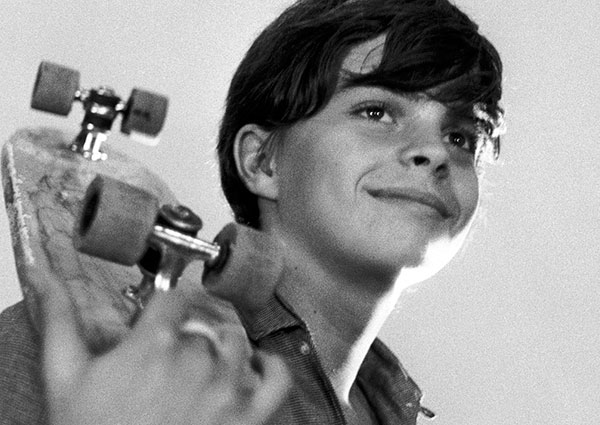Cinéma Direct
by Dominic Gagnon
An image. Images. Sounds in black and white mixed with colours. Who filmed them? Who put them together? Who showed them? Who am I? What are we becoming? Who is going to watch? At what cost? In the mid-twentieth century, in an agency of the Government of Canada known as the National Film Board of Canada there was this willingness to stick to reality, “to become part of something”. And, there was also Arthur Lipsett, who gave place to an added sensibility and distance by using the cut-up technique along with found footage. Two non-contradictory approaches, respectively performative and delinquent inside the institution (National Film Board). Even if it was necessary to humbly go out and meet people or scavenge in the rubbish, the archives, parks and sidewalks with a certain outlook, it was always with the same intention: to understand what is happening around and inside us. And also, doing it behind the administrators’ backs. In this way, each and every film included in this programme is inexplicable according to the institutional guidelines. They are natural and sincere cinematographic displays emerging from the will of free spirits.

21-87
Produced by Colin Low and Tom Daly
This short film from Arthur Lipsett is an abstract succession of unrelated views of the passing crowd. A commentary on a machine-dominated society, it is often cited as an influence on George Lucas’s Star Wars and his conceptualization of “The Force.”

À ST. HENRI LE 5 SEPTEMBRE
Producer: Fernand Dansereau
Cinematography: Guy Borremans, Michel Brault, Georges Dufaux, Claude Fournier, Bernard Gosselin, Jean Roy, Claude Jutra, Bernard Devlin, Arthur Lipsett, Don Owen, Daniel Fournier
Editing: Jacques Godbout, Monique Fortier
Sound: Marcel Carrière, Roger Lamoreux, Roger Hart, Claude Pelletier, Leo O’Donell, Werner Nold
Music: Eldon Rathburn
Song: Raymond Levesque
Narration: Jacques Godbout
This short film is a series of vignettes of life in Saint-Henri, a Montreal working-class district, on the first day of school. From dawn to midnight, we take in the neighbourhood’s pulse: a mother fussing over children, a father’s enforced idleness, teenage boys clowning, young lovers dallying – the unposed quality of daily life.

LA LUTTE
Producer: Jacques Bobet
Cinematography: Michel Brault, Claude Fournier, Claude Jutra
Editing: Claude Jutra, Michel Brault, Claude Fournier
Sound: Marcel Carrière
A candid-camera view of professional wrestling as seen in the Montréal Forum, where some of the biggest bouts are staged, and in back-street wrestling parlors where the warriors practice their art. Nothing escapes the probing camera as well-muscled tyros grapple, punch, squirm, roar and grimace, adding their own variations of showmanship to amuse and excite the crowd.

LES RAQUETTEURS
Cinematography: Michel Brault and Gilles Groulx
Editing: Michel Brault and Gilles Groulx
Sound: Marcel Carrière
This short documentary records the celebration and ritual surrounding a snowshoe competition in Sherbrooke in the late 1950s. The film marked the beginning of a new approach to reality in documentary and prefigures the trademark style of the NFB’s newly formed French Unit. Today, Les Raquetteurs is considered a precursor to the birth of direct cinema.

ROULI ROULANT
Producer: Marcel Martin
Editing: Werner Nold
Cinematography: Michel Brault
Sound: Sidney Pearson
Music: Pierre F. Brault
Song: Geneviève Bujold
Narration: Charles Denner
This short 1966 documentary dedicated “to all victims of intolerance” depicts the dawn of skateboarding in Montreal. A new activity frowned upon by police and adults, skateboarding gave youngsters a thrilling sensation of speed and freedom. This film – the first Canadian documentary ever made about the sport – captures the exuberance of boys and girls having the time of their lives in free-wheeling downhill locomotion.

A TRIP DOWN MEMORY LANE
Produced by Colin Low and Tom Daly
Compiled from some peculiar newsreel items of the last 50 years, the filmmaker calls this a time capsule yet his arrangement of pictures makes it almost explosive. There are hundreds of items, once front-page stuff, but all wryly grotesque when seen in this reshuffle of the past.

VERY NICE, VERY NICE
Arthur Lipsett’s first film is an avant-garde blend of photography and sound. It is made of dozens of pictures that seem familiar, with fragments of speech heard in passing and, between times, a voice saying, “Very nice, very nice.”

VOIR MIAMI
Producer: Fernand Dansereau
Cinematoghraphy: Bernard Gosselin
Sound: Marcel Carrière
Music: Yvan Landry
Narration: Marie-José Raymond, Victor Désy, Anne Claire Poirier
This masterful short is a cinematic allegory of modern America, during Cuban missile crisis. The poetic editing suggests both the aversion and fascination evoked by the Floridian Eldorado, a place to die and American ideal of progress.
